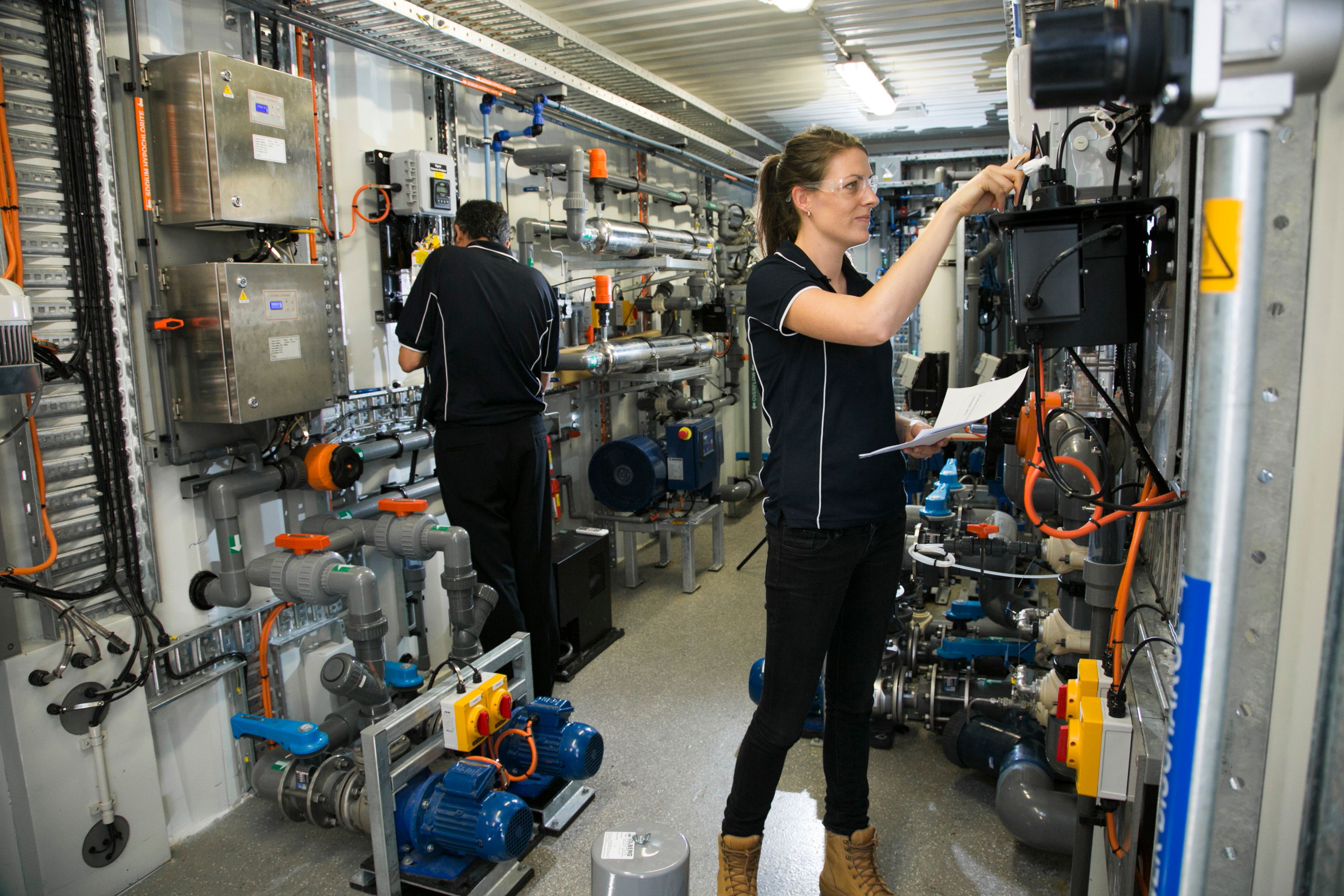Antiscalants
MAK Water’s range of antiscalants are multicomponent formulations that allow higher Reverse Osmosis (RO) system recovery rates and reduce cleaning frequency.
MAK Water’s antiscalants inhibit scale while also dispersing colloidal particles. The inhibition and dispersant properties of MAK Water’s products help extend system run times, reduce cleaning frequency and increase the productive life of RO elements.
Cleaners
MAK Water’s cleaner range formulations are proprietary, membrane compatible cleaners that provide efficient and cost-effective removal of all common foulants. These products come in a variety of pH ranges and include liquids or powders. Many are certified for use in potable water systems. They’re powerful against organic and inorganic foulants and compatible with all membranes.
Biocides
MAK Water’s biocide is a non-oxidising, membrane compatible biocide to reduce biological fouling in membrane systems. Our biocide combats contaminants such as bacteria, fungi and algae and it is compatible with all membranes and can be used with our various cleaners. It may be applied intermittently, via continuous injection or as a periodic addition to your clean-in-place (CIP) system.
Chlorine Scavengers
MAK Water’s MPL solutions are a source of sulphur dioxide, which has strong antimicrobial properties. It is also a strong reducing agent used for removing chlorine and chloramines from water. Typically for larger Reverse Osmosis systems MAK MPL is the typical chlorine reducing agent of choice.
Coagulants
Our coagulants destabilise the fine colloidal particles occurring in water that carry bacteria, viruses and protozoans. We do it with far lower chemical treatment than other methods. The positive charge rates of MAK MFC are the highest in the industry which means they cost a little more per litre, however the exceptional performance allows particles to be removed more effectively and efficiently.
Polymers
MAK Water offers a broad line of polymeric formulations to separate suspended solids and liquids in a wide variety of industries and applications. MAK Water’s polymers are designed to improve the efficiency of your process water, raw water, wastewater, and potable water treatment systems. Our objective is to design a program, which will meet your company or municipality’s water quality performance goals and regulatory requirements while improving cost performance.
Disinfection
Water disinfection can be performed with various disinfectants. Chemical disinfectants are chemical substances, which are used to kill or deactivate pathogenic microorganisms.
pH adjustment
Neutralisation of wastewater that is highly acidic (low pH) or highly basic (high pH) is required for discharge to municipal sewer systems or to rivers and to streams. The allowable pH range for discharge is generally 6 to 9 standard units but can be 5.0 to 11.0 depending on the source of discharge. In potable water treatment the product water might need to be adjusted up or down to maintain it within Australian Drinking Water Guidelines. In order to facilitate these adjustments MAK Water has a range of chemicals at different concentrations available
Cartridge Filter Elements
Cartridge and bag filters are widely used in industrial and domestic applications for removal of suspended solids in drinking water. The variety of cartridges available and the confusing methods of ratings, can make selection of cartridges difficult for consumers. It becomes important for users, therefore, to understand cartridge filters, how they work, and how manufacturers rate them. MAK Water offers two types of filters in a whole variety of configurations to meet our customers’ requirements.
Proper filtration is critical to ensuring desired fluid quality and to help protect key process equipment through minimising associated downtime and repairs.
MAK Water stocks a full range of cartridge sediment filters and bag filters to reduce Total Suspended Solids (TSS) in fluid streams.
Nominal filter rating
A nominal filter rating is an arbitrary value determined by the filter manufacturer, based upon removal of some percentage of all particles larger than a given size.
- The rating is based on a weight percent (etc. 90%)
- The 10% that pass through are NOT defined by the manufacturer (normally much larger particles pass through).
- The rating is based on a weight analysis test.
- It is NOT possible to reproduce the filter.
- Particle unloading is rising when the ∆P across the filter increases
- There is a high risk of channelling when a filter medium has some oversized pores or a wide pore-sized distribution.
- There is a high risk of bypass when cartridge-to-housing seal is ineffective.
Absolute filter rating
The absolute rating or cut-off point of a filter refers to the diameter of the largest hard spherical particle, normally expressed in micrometres (μm), which will pass through the filter under specified test conditions.
- The filter is tested under a specific international well known test method (ISO MTD) according to the ISO 16889 standard.
- The rating is based on a particle measuring test.
- The filter is reproducible.
- Higher ∆P does not result in particle unloading.
- The filter can withstand flow pulsations as well as viscosity and temperature changes.
- There is no risk of channelling due to the high quality of the filter media.
Membranes
Serving a diverse range of industries and applications, we supply and stock a large array of membrane products from most major brands, including microfiltration (MF), ultrafiltration (UF), nanofiltration (NF), and reverse osmosis (RO), in hollow fiber, spiral, and tubular configurations.
Media
MAK Water is a leading stocking distributor of water filter media for industrial and commercial water filtration systems, including water filtration media such as filter sand and gravel, anthracite filter media, greensand water filter media.
Applications
Real-world examples
Maintenance & Services









